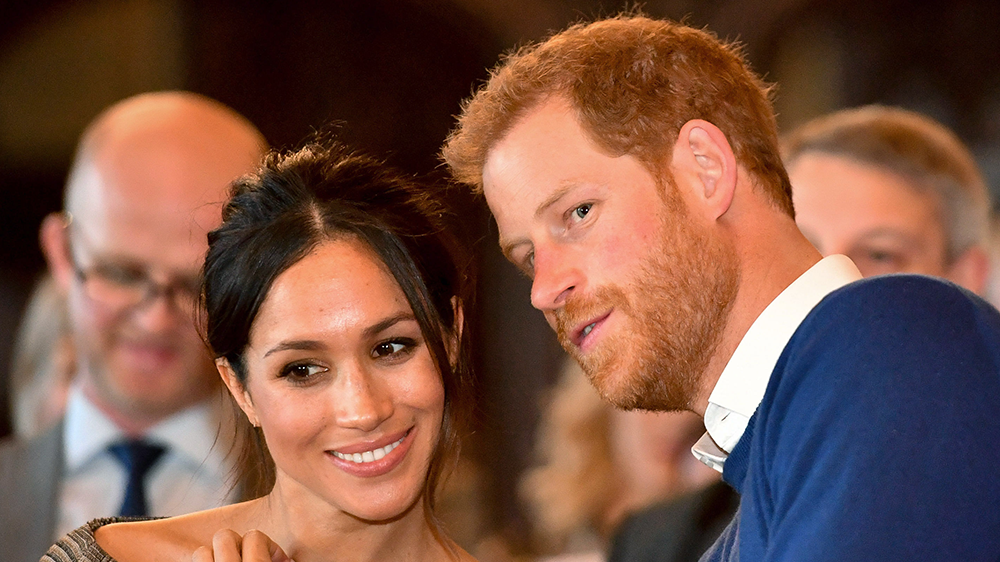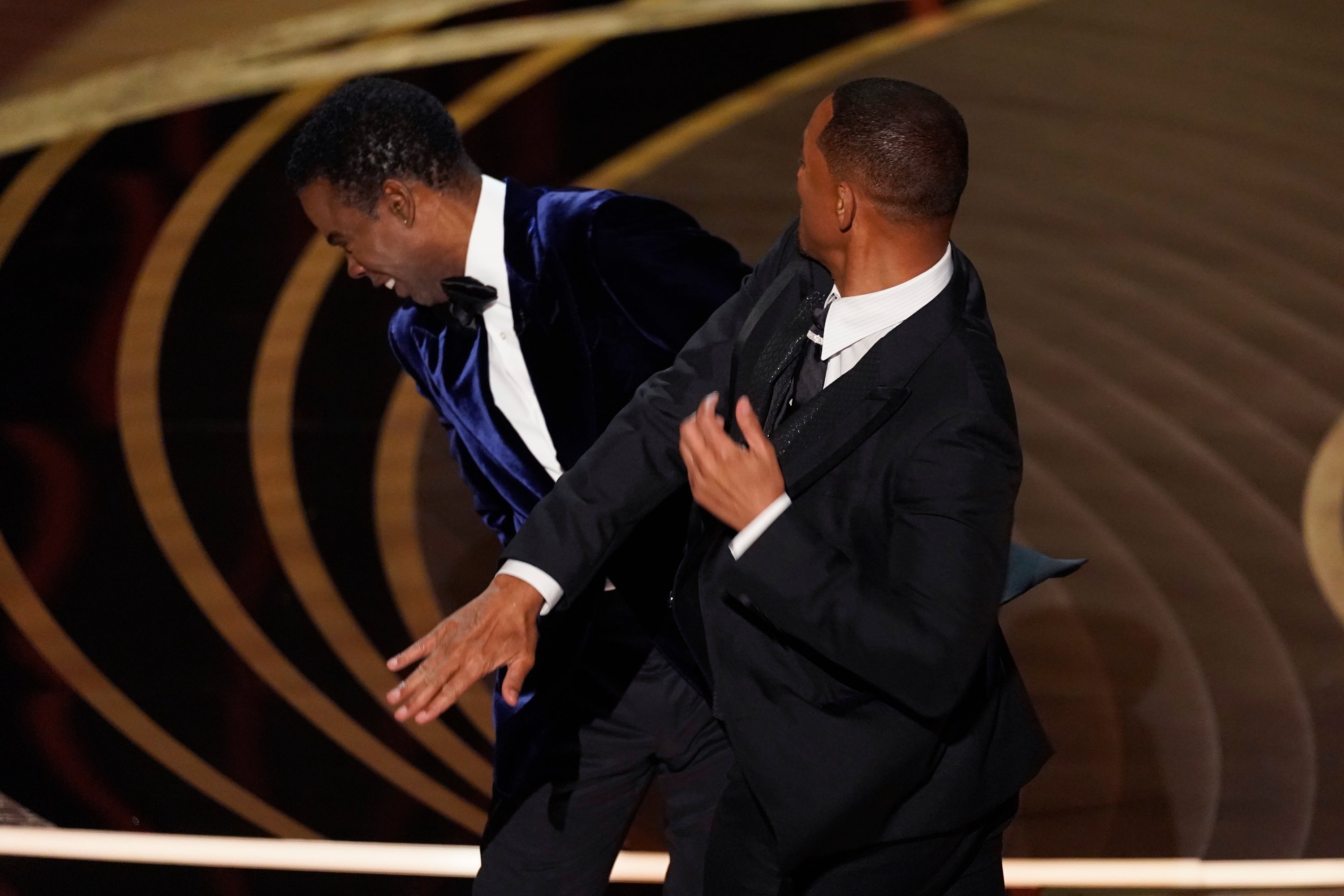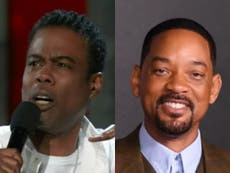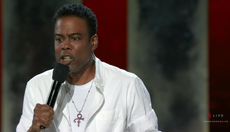Chris Rock made Black people the butt of his jokes in a lazy Netflix special
‘Don’t fight in front of white people,’ Rock said in his defence. Well, that’s ironic.

Your support helps us to tell the story
From reproductive rights to climate change to Big Tech, The Independent is on the ground when the story is developing. Whether it's investigating the financials of Elon Musk's pro-Trump PAC or producing our latest documentary, 'The A Word', which shines a light on the American women fighting for reproductive rights, we know how important it is to parse out the facts from the messaging.
At such a critical moment in US history, we need reporters on the ground. Your donation allows us to keep sending journalists to speak to both sides of the story.
The Independent is trusted by Americans across the entire political spectrum. And unlike many other quality news outlets, we choose not to lock Americans out of our reporting and analysis with paywalls. We believe quality journalism should be available to everyone, paid for by those who can afford it.
Your support makes all the difference.Chris Rock made Black people the total butt of his jokes in his new Netflix special Selective Outrage.
This was disappointing to see, if unsurprising. I love a good laugh as much as the next person and understand the importance of sometimes not taking yourself too seriously. However, there’s a big difference between that – and perpetuating harmful views.
Addressing the infamous Will Smith slap at the Oscars last year, Rock drew reference to the Smiths’ marital issues resulting in Jada’s affair with younger rapper August Alsina.
“Everybody called him (Will Smith) a bitch… but he chose to hit me. You know what my parents taught me? ‘Don’t fight in front of white people’,” Rock said before dropping his mic and ending the show to a standing ovation.
This inference that Will was morally deficient for attacking him “in front of white people” doesn’t stand up to scrutiny when you consider that, just before the Oscars slap, he made an unwarranted joke about Jada’s alopecia health condition in front of an audience of mostly white people. Rock has punched down on Black people in front of vast swathes of white people, for decades.
What’s the difference between these examples and “fighting in front of white people”?
Moreover, it’s difficult to forget that Rock, 58, chuckled away, while white comedians used the N-word in front of him in a resurfaced clip in 2018, losing many fans’ respect in the process. The conversation, between Rock with Louis C.K, Ricky Gervais and Jerry Seinfeld, aired during a TV special on HBO, in 2011.
Rock went on to joke about Meghan Markle and Harry’s suggestion that there’s racism at the heart of the royal family, questioning the belief that the Duchess of Sussex was the victim of discrimination, and adding she was merely dealing with “in-law s***”.
The comedian further highlighted the irony of Markle willingly marrying into a racist institution while claiming to have not known about its history, then complaining about how she was treated.
"Acting all dumb like she didn’t know nothing. (...) You didn’t Google this? It’s the royal family – they’re the original racists,” he said. “They invented colonialism. They’re the OGs of racism. That’s like marrying into the Budweiser family and saying ‘they drink a lot’. (...) These motherf**kers invested in slavery like it was Shark Tank (an American business reality television series)".

Rock further described Meghan’s case as that of a “Black girl trying to be accepted by her white in-laws", adding that this is not as hard as a white girl trying to be accepted by Black in-laws. I am not sure how true that is in the context of prevalent white power structures. Plus, why oversimplify the collective experiences of Black women for comedic value?
While many people - Black, white, royal or common - may well have been curious about baby Archie’s skin colour, like Rock said, there’s a difference between curiosity and royal concern about how melanated the child’s skin would be (according to the Sussexes). This seems to be lost on the comedian.
On the one hand, Rock acknowledges that the royal institution is steeped in racism, but then he glosses over what the impact will have been on a woman of colour.
For the record, I also doubt Meghan went into the royal family without knowing something about the institution, as most reasonable people also do. There’s also a lot of confusion about the couple’s stance on race issues, to be honest. However, Rock’s comedy about it missed the mark.
Misogyny and sexism have always thrived in entertainment industries. Comedy is a sphere where female comics have been propelled to higher heights, but it’s also been a space where misogynoir is rife.
Though Rock expressed a pro-choice position on women’s rights, spoke about the “power” of female beauty, expressed love for his daughters and complimented Black women celebrities like Beyonce, it would be strange not to consider that Rock has an issue with Black women that should be examined.

Speaking of Jada Pinkett Smith, Rock claimed that she attempted to force him to quit hosting the Oscars in 2016 because her husband didn’t get a Best Actor nomination... and he seemed really angry about that.
Moreover, he referred to her as a “bitch” and a ”predator” to an audience in her hometown of Baltimore, where the special was filmed. Again: was this necessary?
It is telling that, despite being slapped by Will after making fun of Jada’s alopecia, Rock saw fit to take aim at Jada once again. It is as though he couldn’t help himself. It reeks of misogynoir. Does Rock have a problem with a Black woman who has sexual agency?
Perhaps he does. After all, his assessment of the Kardashians – a rich, white family who exemplifies sexual agency – was a glowing one.
“The Kardashians are inclusive. They love Black people more than Black people love Black people,” Rock said, suggesting that the family takes in all sorts of characters as long as they meet the “Black” criteria such as his one-time collaborator Kanye West, whom he branded a “bipolar rapper”, “crackhead basketball player” Lamar Odom.

Something about those jokes grate on the spirit, in the context of drug addiction issues within Black communities and Black people being more likely to experience chronic mental health conditions due to factors including racial trauma, poverty and inadequate healthcare. The same is true in the UK. Maybe Rock is insulated from that specific reality because he’s rich and a part of the establishment that he’s now hesitant to critique – but it’s something that millions of people grapple with.
I didn’t laugh at any of Rock’s special because I found much of it lazy and lacking in empathy for Black people. The special was a missed opportunity to deliver some clever comedy which I believe he’s capable of doing. And I say this as someone who has enjoyed aspects of other his previous projects including Everybody Hates Chris, Death At A Funeral and the Madagascar film series.
Rock’s frequent failings on race is pitiful. He is an inspiration to many Black people, and has campaigned against the racial profiling of Black communities. He’s spoken about the racism he experiences “despite being famous”. Even his Good Hair documentary, though far from perfect, was a pioneering attempt at highlighting the difficulties Black women face within and around the beauty industry.
Good comedy sometimes cuts close to the bone, yielding the capacity to infuriate, shake and transform. It can confront audiences by challenging their stance on issues, in spite of themselves, and causing them to question perceptions.
The best type of comedy is relatable to audiences and unflinchingly honest. However, Rock’s standup felt like a disgruntled man ranting in an echo chamber. Though insisting that he’s “not a victim”, the comedian literally had tears in his eyes and appeared to be vying for the crowd’s sympathy and affection – at Black folks’ expense – nonetheless.
This is not black and white or as simple as, “the special was crap, so let’s cancel this guy” – that’s not what I am saying. There’s scope for him to do some reflecting and healing that he’s obviously in need of, grow, and come better next time.
After maybe examining his own selective outrage and how that affects his world views.



